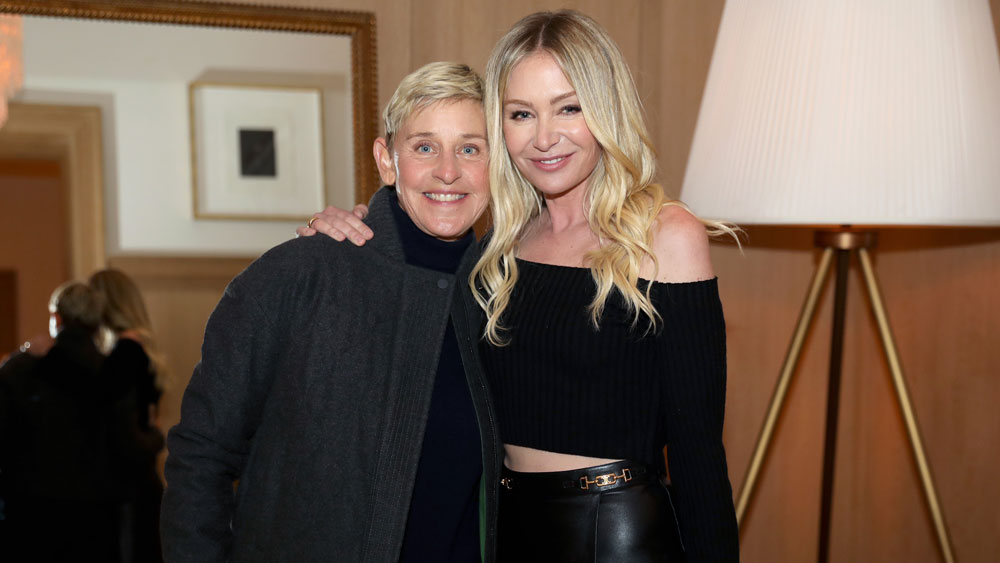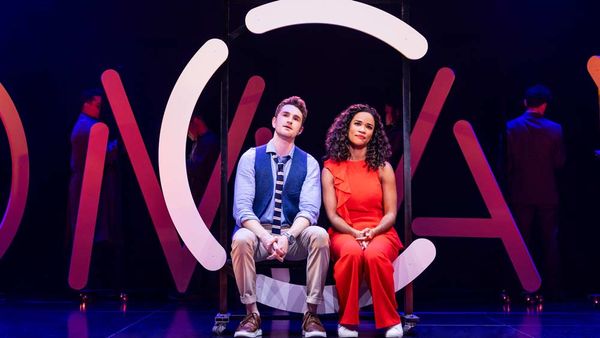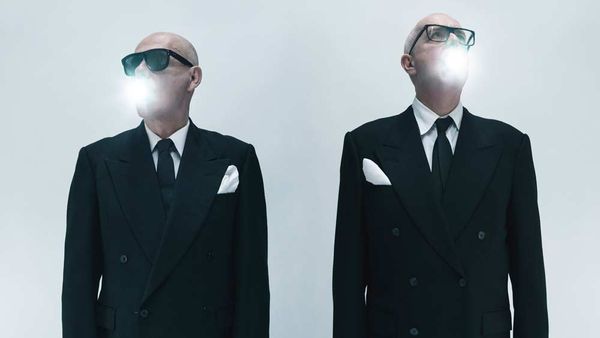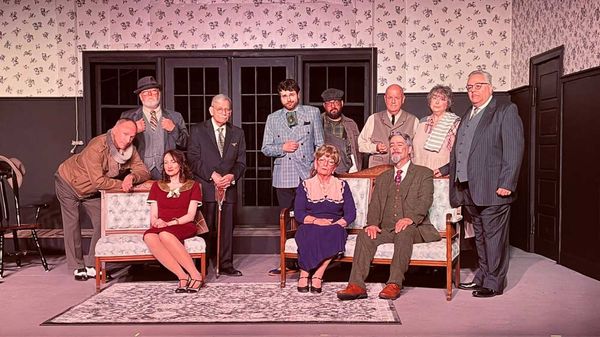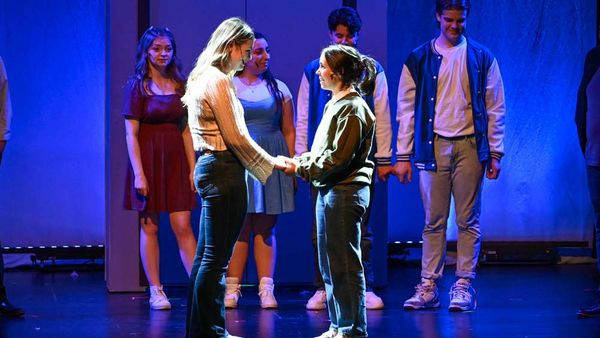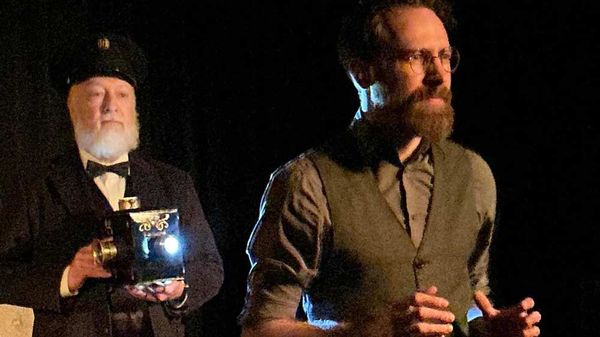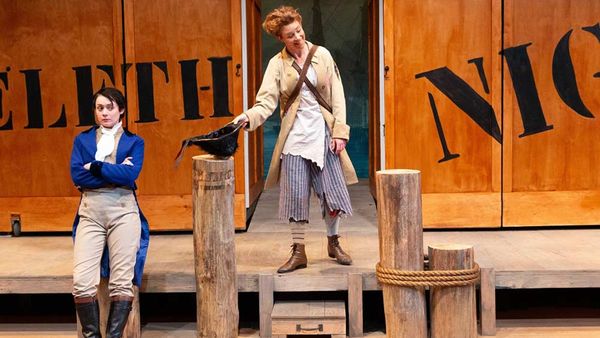October 25, 2011
The Rocky Horror Show
Robert Nesti READ TIME: 5 MIN.
"Wow. That was fun," said a woman outside of Oberon after seeing "The Rocky Horror Show."
"Fun," chided a bystander. "That wasn't just fun. That was awesome!"
It turns out they both are right. "The Rocky Horror Show," staged by the Gold Dust Orphans in the environmental setting of the black box theater-turned-nightclub, is a wildly enjoyable mash-up of 1970s glam rock and 21st century irony. It pays homage to its source material - the 1973 British take-off on 1950s sci-fi films - as it reinterprets it in the cheeky style that has come to define the work of the Orphans.
The plus here - and it's a big one - is that they have relocated to this state-of-the-art performance facility, which they turn into a funhouse attraction - a musical theater equivalent of a Halloween haunted house in which the action transpires on the floor, above on the catwalks, even on the tables where audience members could easily end up with Ryan Landry's ass in their face. Well, not quite, but you get the idea.
Landry, of course, plays Dr. Frank N. Furter, the demonic transvestite mad scientist who in the best Frankenstein manner creates a monster of his own. That it turns out to be a hulking piece of beefcake - Rocky Horror - clearly underscores the show's queer sensibilities.
Not that it needs much underscoring. "The Rocky Horror Show" has long been one of those transgressive works that gleefully turns traditional values, represented by the squeaky clean couple Brad and Janet, on end. It isn't long before the pair are being seduced by Frank N. Furter unbeknownst to each other.
The moment comes with one of those lewd sight gags that has come to define the Orphans' style. Much of the fun comes from the musical's satiric underpinnings (long familiar to many in the audience from its classic film version), played to the hilt by Landry and his uber-talented cast. Add Jim Byrne's dynamic and free-wheeling staging, and you have a show with electrifying immediacy.
Nowhere is that better seen than with Landry's entrance, coming down from one of the catwalks in the iconic look (Dracula cape, black bustier and black net stockings) that Tim Curry made famous first on the London stage, then in the film. Landry's raspy baritone is well-suited for Frank N. Furter's memorable opening turn ("Sweet Transvestite") and he commands the room like a diva being received by her claque. Memories of Curry and the film all but disappear.
Landry's "wink-wink" style, a hallmark of his performances at Machine, is a bit toned down - it's not that the audience isn't in on the jokes, he just doesn't reference them as often as he has in the past. He is obviously having a ball. And why not? It's a role he was born to play.
That Byrne and he have assembled such a top-notch cast shouldn't be surprising for anyone who's attended any of the Orphans' past work. And given the work-out they're put through in Byrne's staging, which has them all over the club, singing, commenting or just hanging out on the balconies and mobile cubes that move about the dance floor, they prove as talented as they are tireless. Of course, similarities to "the Donkey Show," Oberon's other long-running hit, are inevitable, but this isn't a slavish reproduction - it has integrity of its own.
This approach fits the loose style of the musical perfectly. Its story, a mash-up of pulpy sci-fi and horror films, is more just a framework to hang Richard O'Brien great songs, which have more a rocker's sensibility than that of pop Broadway tunesmith. While the show is often played for camp, the key to the success of this production is that it is true to those rock and roll roots, which gives it the drive that other versions miss.
Not that it doesn't have its camp elements - Bill York appears to be channeling Bette Davis as the narrator, Scott Martino's ample and clever costumes are delightfully over-the-top, and the media slide show (by Tim McCarthy) references many of the cheesy horror movies that the musical satirizes. But with the driving accompaniment of the terrific band, The Future Starlets, and a cast that would be right at home performing at the House of Blues, this "Rocky Horror" rocks.
There are terrific performances all around: Orphan regular Gene Dante and newcomer Kayla Foster play Brad and Janet as if they've wandered in from "The Book of Mormon," and both sing with full-bodied style that would be right at home in that show. As Eddie Timothy Lawton has the unenviable job of following Landry's "Sweet Transvestite" with the old-school rocking "Hot Patootie - Bless My Soul" and he does so in a spectacular turn. (He also turns up later in the non-singing role of Dr. Scott.) James Cerne has both the Charles Atlas-looks (in other words, hot) and the right self-mocking tone as Rocky Horror; Tad McKitterick and Laine Binder give Frank N. Furter's domestics - Magenta and Riff Raff - a nasty, ghoulish edge; and York makes it appear that Bette Davis has risen from the grave.
In the past few years "The Rocky Horror Show" has been revived on Broadway (with mixed results) and Glee'd - a fate that seems the antithesis of O'Brien's subversive little musical. Perhaps the culture has changed to a point where its once-considered dangerous mix of sex, drugs and rock and roll have been digested whole by the mainstream. This may be the case, but Landry and his Gold Dust Orphans make a case for the show as a crazy, funny, campy rock and roll spectacle. A perfect late night entertainment for a fall evening that could easily become a Friday night staple for months to come.
"The Rocky Horror Show" runs Fridays through December 2, 2011 at 10:30 pm at Oberon, 2 Arrow Street, Cambridge, MA. For more information, visit the Gold Dust Orphans Facebook page.
Robert Nesti can be reached at [email protected].

